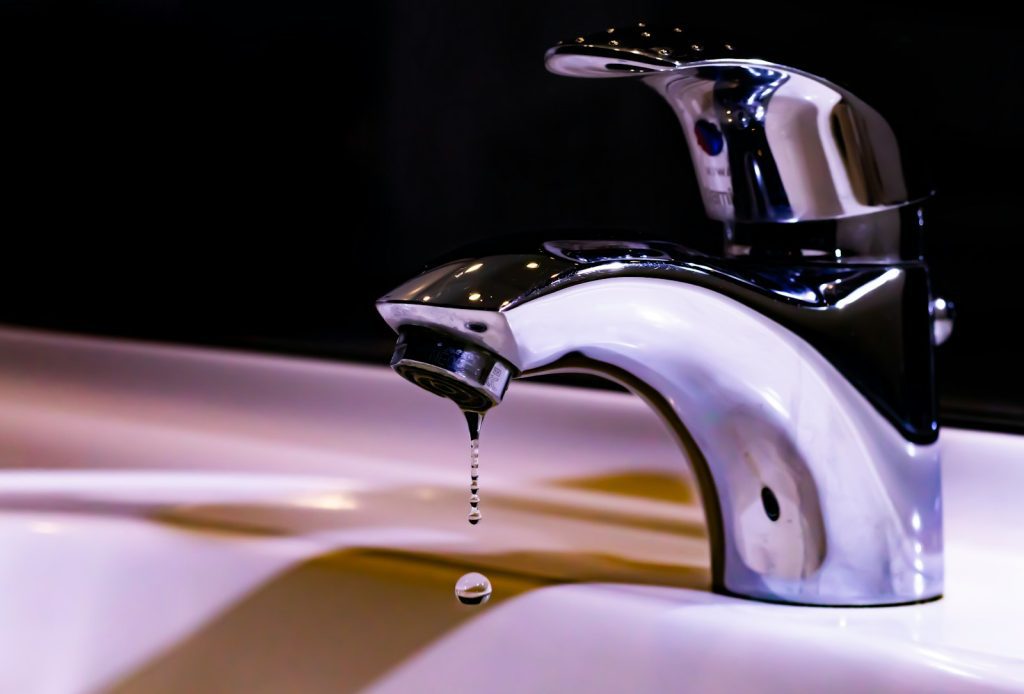Imagine waking up to a flooded kitchen. No one in Texas wants that. But if it does happen, will your homeowners insurance help? Most sudden water problems, like a burst washer hose or a backed-up sewer, are usually covered. Yet, not all plumbing issues are covered by your insurance in Texas. Does home insurance cover plumbing in Texas when you’ve been negligent or forgotten maintenance?
If a pipe bursts in your house and water floods in, your insurance likely covers it. But you can’t ignore basic care. For example, not insulating pipes against winter cold could mean no help from your policy. Understanding what your homeowners insurance cover plumbing for can be tricky. We’re here to make it clearer for you.
It’s important to plan. Call your insurance agent before a plumber to understand your coverage. The mix of plumbing damage and insurance coverage in Texas can be complex. But you have many ways to protect your home. Knowing your policy well protects you from the unexpected. Coverage ranges from your dwelling to personal property and loss of use during repairs.
Looking to find the best plumber in Texas?
Understanding if Your homeowners insurance cover plumbing Problems
In Texas, getting to know your home insurance policies is key, especially coverage for plumbing problems. Your standard homeowners insurance usually covers sudden events, like water damage from burst pipes. But, knowing what is not covered is also vital for full protection under your homeowners insurance policies.
Your insurance probably pays for wall, floor, and belongings damage. Yet, fixing the actual plumbing, like a burst pipe, might not be covered. It’s essential to know what your policy includes and what extra coverage you may need, especially since homeowners policies may vary.
- Burst Pipes: Water damage Damage to your home from burst pipes is often covered by insurance.
- Appliance Leaks: Sudden leaks from appliances, like washers, that cause water damage could allow for an insurance claim.
- Overflowing Bathtubs: Damage to your home from sinks or tubs accidentally overflowing might also be covered by homeowners insurance policies.
Common exclusions in home insurance policies usually include damage from wear and tear or negligence. For example, not keeping your home warm enough to stop pipes from freezing. Normally, insurance covers the damage but not the source, like a leaking pipe.
To improve your coverage, you might consider the following:
- Water Backup Coverage: This extra protection covers damage from sewer or drain backups.
- Equipment Breakdown Insurance: This helps with appliance issues not included in the standard policy.
- Enhanced Plumbing Coverage: Some insurance offers extra coverage for things like sump pump overflow or major sewer line damage.
Being proactive is key. Use leak detectors, have regular checks by pros, and know where your water shut-off valve is. This can prevent plumbing problems. It also ensures your home insurance policies work well when needed. Learning your policy details will help you manage surprises, reduce costs, and make insurance claims smoother for plumbing and water damage.

What Types of Water Damage, pipe damage, and Mold are Covered in Texas?
In Texas, understanding homeowner and renter insurance can be tough. Knowing what is covered for water damage and mold is key. Let’s look at what situations your insurance might cover. Dealing with these issues can be troubling, if you are looking for our plumber, view our best plumbers in Texas.
Instances of Sudden and Accidental Water Damage
Insurance usually covers water damage that is sudden and accidental. This includes burst pipes, toilet overflows, and faulty appliances like washers and dishwashers. Water from these sources can quickly flood your home. You’ll need to act fast.
- Burst pipes: Highly common during cold snaps and if pipes are not properly insulated.
- Overflowing toilets and bathtubs: Often the result of blockages or mechanical failure.
- Appliance leaks: Dishwashers and washing machines can start leaking due to faulty seals or hose connections.
Quickly report water damage and mold claims to your insurer. Speedy action helps reduce damage and ensures you’re compensated as some policy may cover this.
Mold Resulting from a Covered Water Damage Scenario
Mold coverage in Texas usually follows water damage. Mold can grow within 24 hours of getting wet. It’s crucial to deal with water damage immediately. Usually, mold covered by insurance and potentially cover damage caused.
- Immediately contact your insurer to report the damage and mold concern.
- Use dehumidifiers and fans to start drying out the affected areas right away.
- If professional mold remediation is necessary, hire only licensed professionals who will also provide certificates of mold remediation, ensuring that both the mold issue and the underlying plumbing issue are resolved.
Check your policy for mold removal coverage details. Keeping detailed records and receipts for repairs helps with your claim.
Exclusions in Homeowners Insurance: What Texas Policies Typically Don’t Cover
Understanding what isn’t covered by your homeowner’s insurance in Texas is vital. Many are shocked to learn after an incident that their policy doesn’t cover certain water damages. Or that they need extra policies for some protections. Some won’t cover leaks, cover water damage caused, and cover sewer line issues in severe cases.
Gradual Water Damage and Maintenance-Related Issues
Insurance often doesn’t cover gradual leaks and maintenance issues. Over time, tiny leaks or wearing out plumbing can cause big problems. But, these slow leaks aren’t usually covered by typical policies in Texas. They are seen as preventable, and it’s the homeowner’s job to keep plumbing in good shape.
Checking and fixing old pipes and appliances can lessen the risk of water damage. Also, water leak detectors can help avoid big damages. This makes it easier if you need to claim water damage when coverage isn’t clear.
Floods and the Need for Separate Flood Insurance
Flood damage is a major thing not covered by many Texas policies. Damage can come from heavy rains, overflowing rivers, or other water sources. For floods, you often need a separate policy. Even homes not in flood zones, like during Hurricane Harvey, sometimes get hit, showing flood insurance’s importance.
Getting flood insurance adds peace of mind and protects your finances. Make sure to ask your insurer about flood coverage and if your area has a high flood risk.
Knowing these exclusions and getting the right insurance or taking preventive steps is crucial. It can help you recover quickly and avoid costly repairs after unexpected damage.

How to File a Claim for Plumbing Issues in Texas
Dealing with plumbing problems is tough. Knowing how to file an insurance claim can help a lot. If you face issues with your plumbing system, quickly taking steps is key. This helps make sure you get the most from your claim and that your coverage fits your needs.
First, limit more damage when you find a leak or a broken part. This may mean turning off the water or doing temporary fixes. Keep a detailed record with photos and videos. These are strong evidence for your insurance company.
Here are the steps to tackle the issue:
- Call your insurance as soon as you can after the problem is under control. Quick action is key. This is true for things like burst pipes or sudden floods that most property coverage plans cover.
- Collect and give all needed documents. This means pictures of the harm, a list of damaged items, and any bills for quick fixes. This info is vital for proving your case. It helps make sure you get the right payout under your personal property coverage.
- For mold, don’t wait. Mold needs fast action since coverage depends on it being due to a covered risk and being reported quickly. Only let licensed pros handle clean-up or mold removal. Keep all related documents and receipts.
It’s crucial to know your homeowners insurance details for plumbing issues. Also, regularly check your policy. This greatly impacts the result of claims. If confused, talking directly with your insurer can clear things up and guide you.
- Knowing your policy’s details, like how it handles slow leaks, is vital since many plans typically won’t cover them.
- After filing your claim, it might be wise to check with a plumber. They can spot problems you might miss, preventing future issues.
These steps will help you handle insurance claims for plumbing problems in Texas well. It ensures your property is safe and keeps your mind at ease.
Preventative Measures to Avoid Plumbing Disasters and Potential Insurance Vlaims
Keeping your plumbing system in top shape is key to preventing costly damage. By acting early, you can dodge plumbing nightmares and protect your home. This also means you won’t have to deal with the hassle of insurance claims.
Regular Inspections and Timely Repairs
An expert’s inspection every year is vital for your plumbing’s health. These pros can catch issues like high water pressure and small leaks before they get worse. For example, tracking water pressure can spot problems early. This saves you from big expenses later on.
Turning off your water right away if a leak happens can cut down water damage massively. Keeping pipes warm and using mesh screens helps too. It keeps pipes from freezing and stops drains from clogging. About 30% of calls to plumbers are for these reasons.
Installing and Utilizing Smart Home Technology for Leak Detection
Smart technology today helps prevent plumbing disasters before they start. Tools like leak detectors alert you early, helping avoid major damage. They also check your plumbing’s condition. Amazingly, using these gadgets can lower your insurance claims greatly.
Insurance companies often give discounts if you use this tech. It’s a smart move that saves money and keeps your house safe. Plus, it cuts down on future repair costs.
With these steps, you can stop plumbing problems before they escalate. Your home stays safe and you avoid unnecessary stress and expense.

Does Home Insurance Cover Plumbing in Texas?
Understanding how your home insurance works with plumbing in Texas is key. Many homeowners are curious if their policy covers plumbing damage, like from a burst pipe. It’s a common concern.
Home insurance in Texas usually covers plumbing problems in certain cases. For example, if a pipe bursts suddenly, damaging your floors or walls, insurance likely has you covered. This situation fits the ‘sudden and accidental’ clause in most policies.
- Sudden and Accidental Damage: With a burst pipe, your policy often covers the damage to your home’s inside.
- Water Damage Coverage: Policies in Texas often pay for water damage repairs but exclude natural disaster flood damages without specific flood insurance.
Limits and exclusions in your policy are important to recognize. Slow leaks or rust aren’t usually covered. Insurers see these as maintenance issues you’re expected to handle.
- Keeping your plumbing in check with regular inspections can prevent many problems.
- Installing leak detection Systems can also reduce risks and insurance claims from water damage to your home.
Although basic home insurance gives you coverage, exclusions may require extra policies. To fully protect against plumbing issues, consider updating your policy. This is especially true for homes with special plumbing or older houses.
Also, Texas standard home insurance policies typically have insurance that does not cover damages from neglect or normal wear and tear. Maintaining your plumbing system helps reduce risks and protects your home from potential plumbing problems.
In summary, your Texas home insurance offers significant plumbing protection. However, knowing policy limits and taking steps to prevent issues can boost your coverage and peace of mind and let you know what your homeowners insurance may cover.
Conclusion
Homeowners in Texas should know that their home insurance typically covers many water incidents. But, it’s key to understand the limits of this coverage. The cost of water damage is high, averaging $12,514 from 2017 to 2021. So, knowing what your policy covers is vital for protecting your home.
HO-3 policies act as a safety net for many sudden issues but watch out for what homeowners insurance doesn’t cover. This includes maintenance issues, gradual damage, and floods. For flood coverage, you’ll need additional policies, like those from FEMA’s National Flood Insurance Program.
To steer clear of plumbing problems, take proactive steps to minimize water damage to your home. Following the right steps when you file a claim is crucial. Regular check-ups and fixing issues quickly can prevent many plumbing issues.
Additionally, think about getting extra coverage for complete protection, as standard home insurance might need a separate flood insurance policy. This includes coverage for sewer backup and sump pump failures. It’s all about keeping your home safe from every possible plumbing risk.
Navigating insurance terms can be tough, but being informed helps you avoid plumbing disasters and understand homeowners insurance policies. Knowing your policy and getting the right endorsements are important. They protect you from expensive repairs. Stay up-to-date to keep your home safe from unexpected problems. The best way to avoid this is to do regular maintenance of your plumbing (areas such as drains) and maintenance of your plumbing system (areas such as sewage tank),


